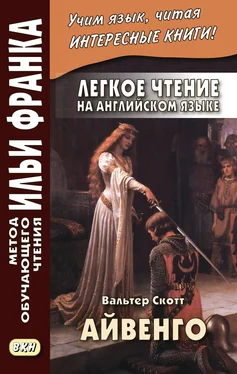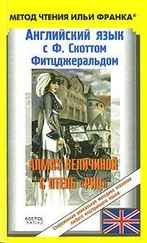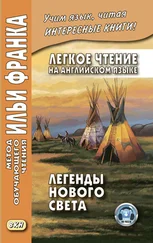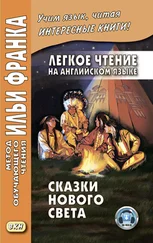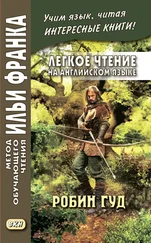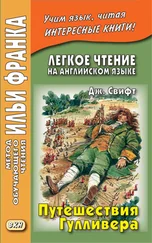fight[faɪt] , death[deθ] , defeat[dɪ’fi:t]
“Fight on, brave knights!” shouted the heralds. “Man dies, but glory lives! Fight on, death is better than defeat! Fight on, brave knights!”
As the lists slowly became less and less crowded, the audience could see that the Disinherited Knight and the Templar had finally met and were fighting each other.
Front-de-Boeuf and Athelstane saw this too(Фрон-де-Бёф и Ательстан тоже увидели это) , and they rode up from behind the Templar(и они выехали /верхом/ из-за /спины/ тамплиера) in order to attack the Disinherited Knight from both sides at the same time(для того, чтобы напасть на рыцаря Лишенного наследства с обеих сторон в одно и то же время = одновременно; in order to – для того, чтобы; to attack – атаковать, нападать, штурмовать ).
“Beware(берегитесь; beware – беречься, остерегаться, опасаться ) ! Beware, Sir Disinherited(берегитесь, сэр Лишенный наследства) !” the crowd shouted out to the Disinherited Knight(толпа кричала рыцарю Лишенному наследства).
Templar[‘templǝ] , attack[ǝ’tæk] , beware[bɪ’weǝ]
Front-de-Boeuf and Athelstane saw this too, and they rode up from behind the Templar in order to attack the Disinherited Knight from both sides at the same time.
“Beware! Beware, Sir Disinherited!” the crowd shouted out to the Disinherited Knight.
Hearing them(услышав их) , he managed to strike at the Templar(ему удалось нанести удар рыцарю храма; to manage – руководить, управлять; ухитриться, умудриться, суметь сделать что-либо ) while pulling his own horse back sharply(одновременно резко осадив своего коня; to pull back – отдергивать, оттаскивать, оттягивать; sharp – острый; остроконечный; крутой, резкий /о спуске, повороте, подъеме и т. п./ ) , thereby causing Athelstane and Front-de-Boeuf to ride into each other(таким образом заставив Ательстана и Фрон-де-Бёфа наскочить друг на друга; to cause – послужить причиной/поводом для чего-либо; мотивировать что-либо; to ride – ехать верхом ) between himself and the Templar(между собой и рыцарем храма).
sharply[‘ʃɑ:plɪ] , cause[kɔ:z], each[i:tʃ] , other[‘ʌðǝ]
Hearing them, he managed to strike at the Templar while pulling his own horse back sharply, thereby causing Athelstane and Front-de-Boeuf to ride into each other between himself and the Templar.
As the three knights recovered(пока эти трое рыцарей приходили в себя; to recover – вновь обретать; возвращать, получать обратно; оправляться, приходить в себя /от болезни, удивления, испуга и т. п./ ) , the Disinherited Knight rode off across the lists(рыцарь Лишенный наследства ускакал на другой конец арены; to ride off – отъезжать, уезжать /на лошади, велосипеде и т. п./; across – поперек, в ширину; на ту сторону, напротив ) . Since he was riding on the war-horse(так как он скакал /верхом/ на боевом коне) that he had won the day before(которого он выиграл накануне) , he easily escaped from the Templar(он с легкостью ускакал от рыцаря храма; to escape – бежать, совершать побег; избежать /наказания, опасности и т. п./, спастись; отделаться ) , whose horse was wounded(чей конь был ранен) , and the other two knights(и от двух других рыцарей) , whose horses were tired(чьи кони устали) from the weight of their heavy riders(от веса своих тяжелых всадников).
recover[rɪ’kʌvǝ] , war-horse[‘wɔ:hɔ:s] , escape[ɪ’skeɪp] , wounded[‘wu:ndɪd] , weight[weɪt]
As the three knights recovered, the Disinherited Knight rode off across the lists. Since he was riding on the war-horse that he had won the day before, he easily escaped from the Templar, whose horse was wounded, and the other two knights, whose horses were tired from the weight of their heavy riders.
At the edge of the lists(в конце ристалища) , he turned his horse around again(он снова повернул своего коня; around – вокруг ) and fought against all three knights with his sword(и /стал/ сражаться со всеми тремя рыцарями мечом) . It was obvious to everyone, however(однако всем было очевидно; obvious – очевидный, явный, ясный ) , that he was outnumbered(что его превосходили численно = что силы были неравны; to outnumber – превосходить численно; number – число ) and would be defeated very soon(и что /он/ будет повержен очень скоро) . The noblemen around Prince John agreed(дворяне, окружавшие принца Джона, сошлись во мнении; to agree – соглашаться; сходиться во взглядах ) that this was unfair(что это несправедливо) and asked the Prince to signal the end of the tournament(и попросили принца Джона подать сигнал к окончанию турнира; to signal – подавать сигнал; сигнализировать ).
edge[edʒ] , obvious[‘ɔbvɪǝs], outnumber[aʋt’nʌmbǝ] , unfair[ʌn’feǝ]
At the edge of the lists, he turned his horse around again and fought against all three knights with his sword. It was obvious to everyone, however, that he was outnumbered and would be defeated very soon. The noblemen around Prince John agreed that this was unfair and asked the Prince to signal the end of the tournament.
“No, by the light of Heaven(нет, клянусь светом небес; by – зд. употребляется в формулах клятв, обещаний с глаголом swear /клясться чем-либо/, а также во фразах с опущенным глаголом ) !” replied Prince John(ответил принц Джон) . “This knight who hides his name(этот рыцарь, который скрывает свое имя; to hide – прятать, скрывать ) has already won one prize(уже выиграл один приз) . Now he should let others have their turn(теперь ему следовало бы позволить другим выиграть: «получить свое»; turn – оборот; очередь ) !”
Читать дальше
